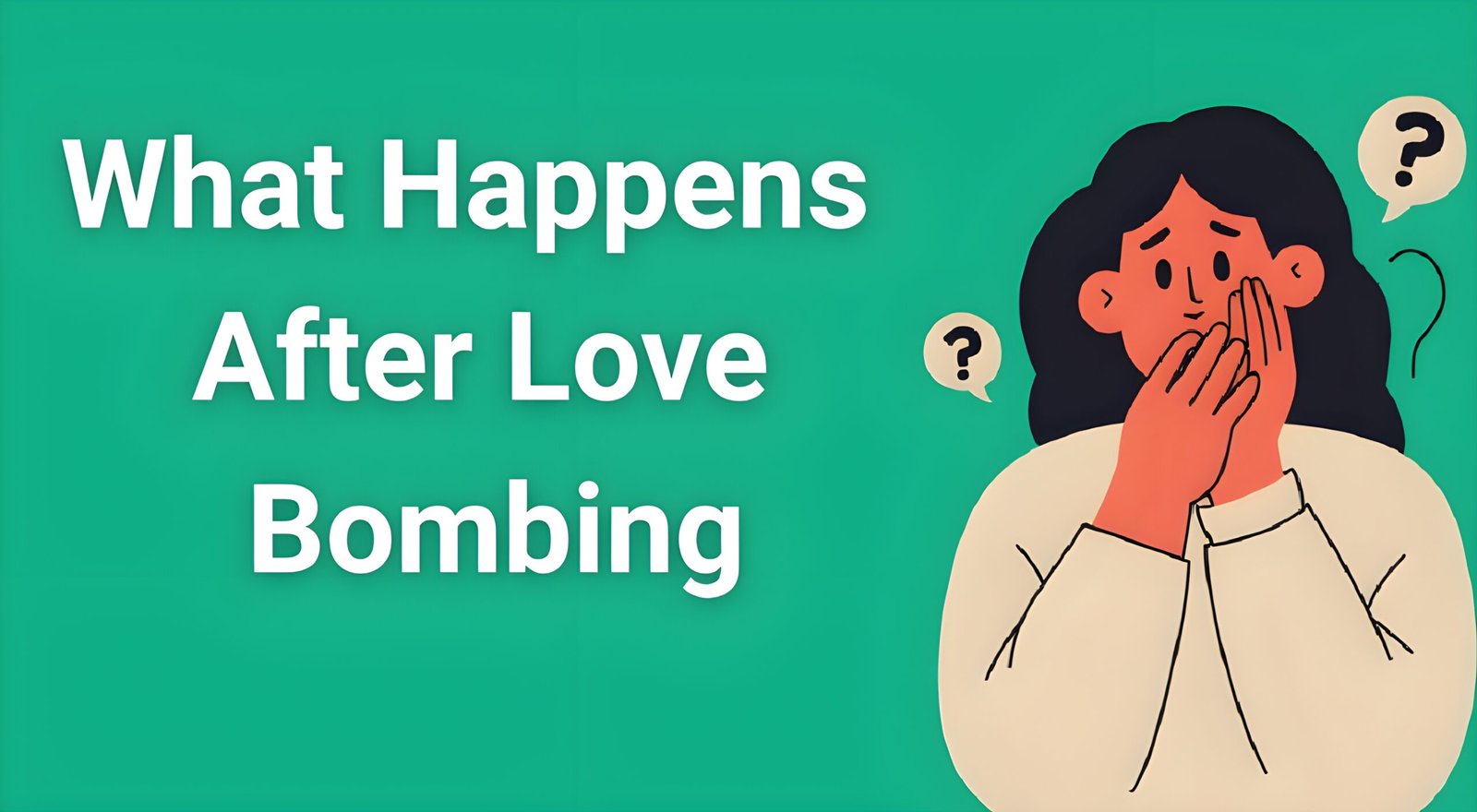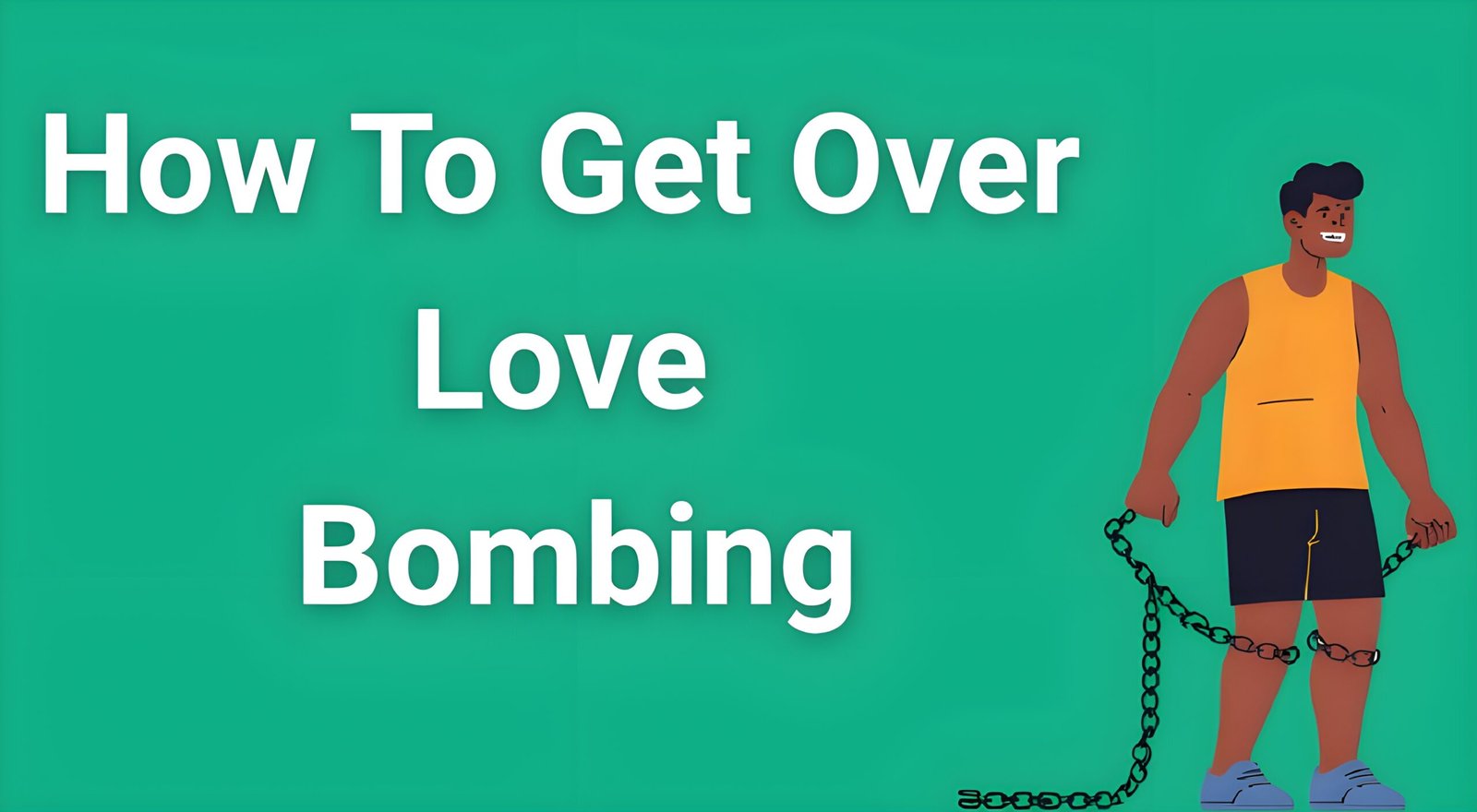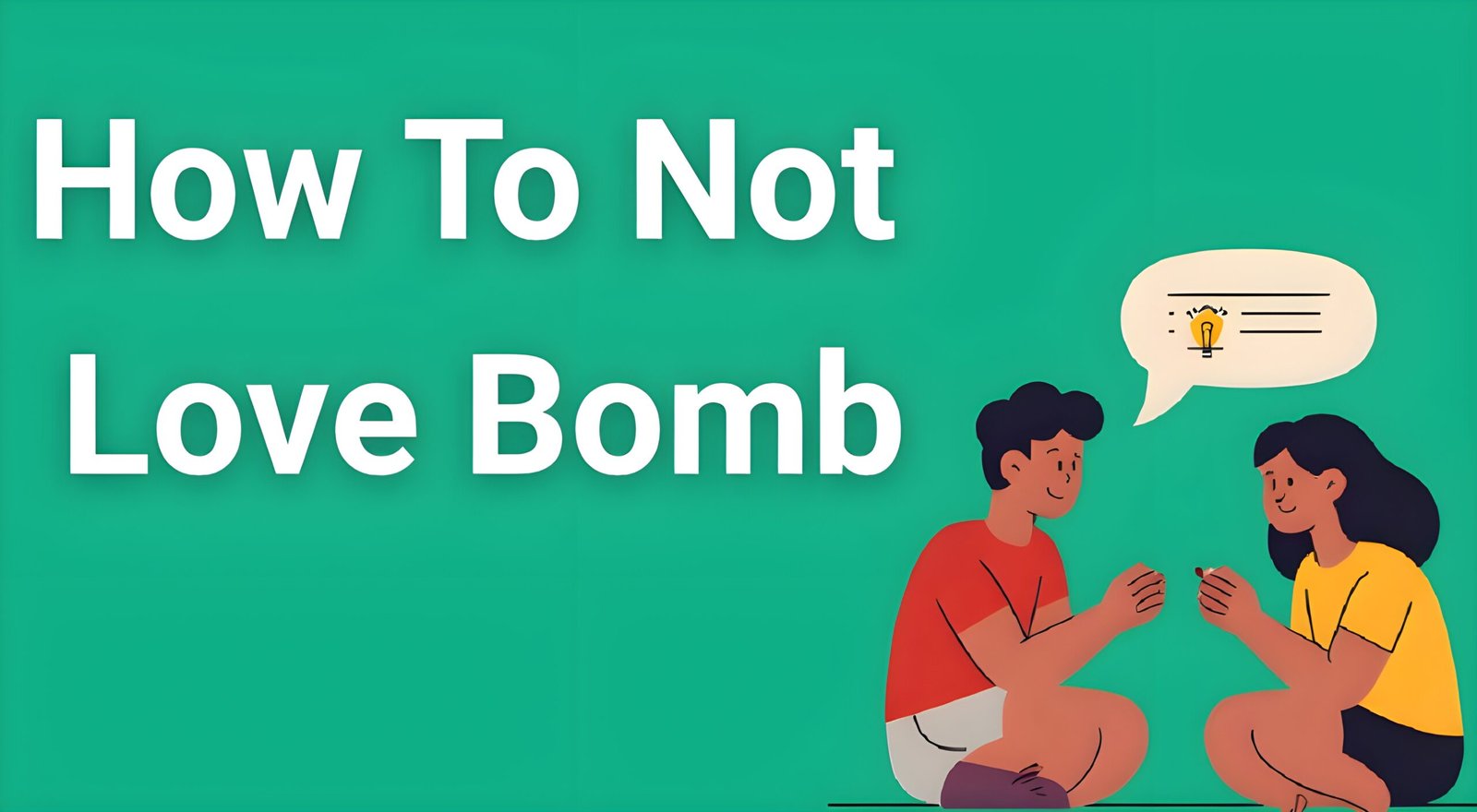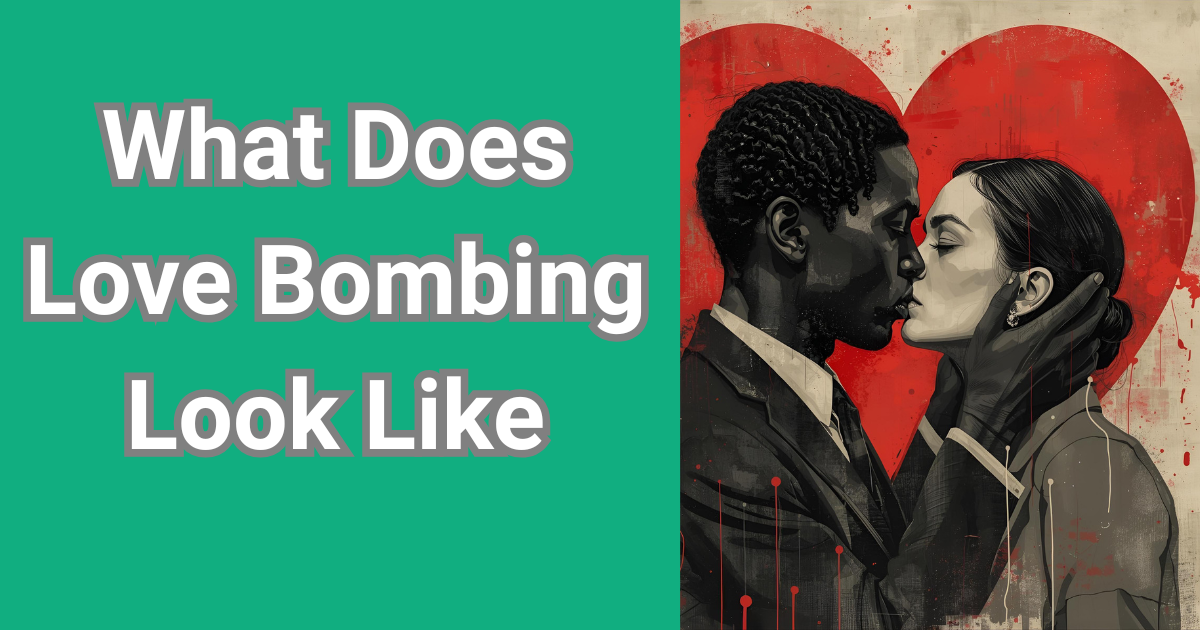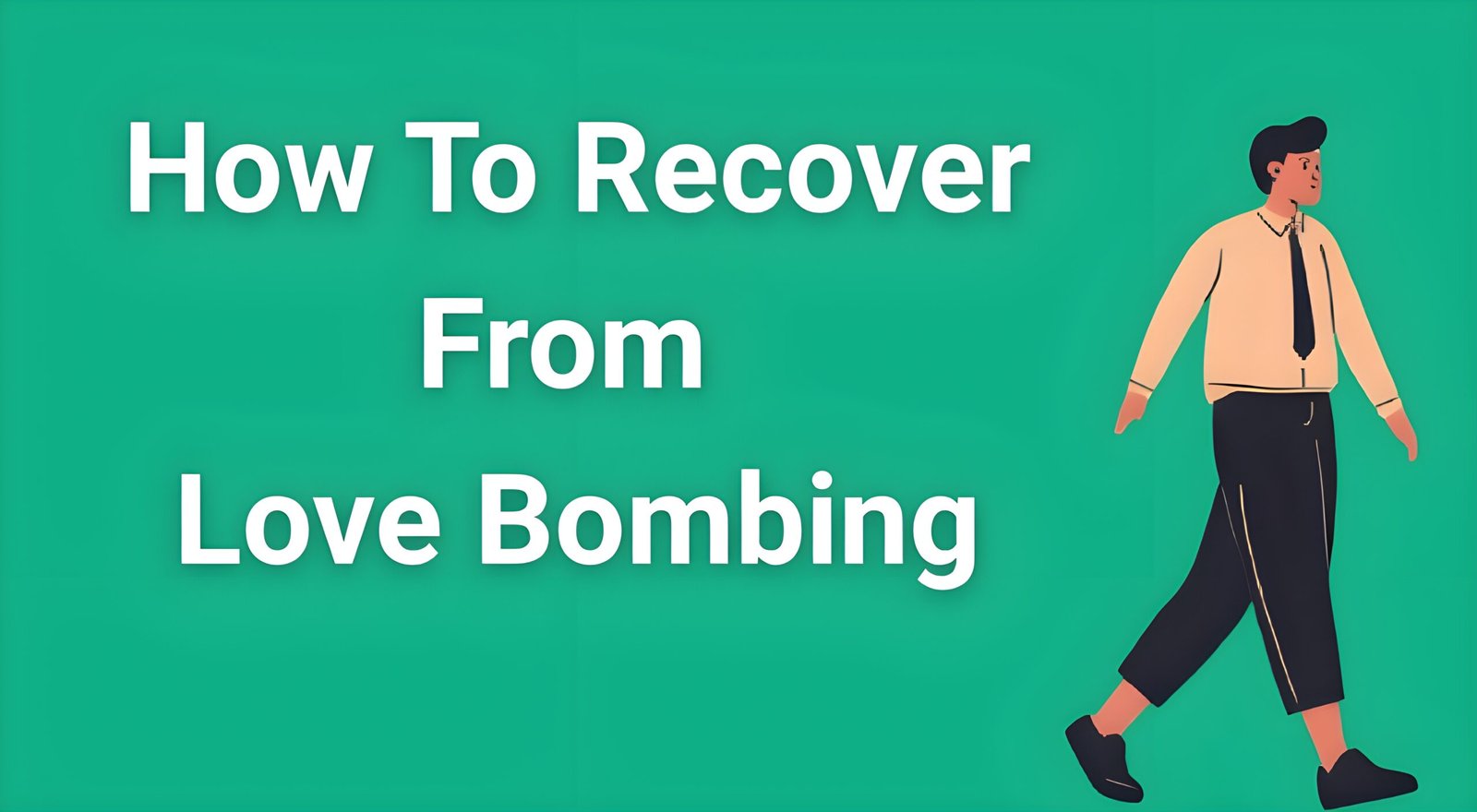If you’re desperately searching “what happens after love bombing” at 3 AM, wondering why the person who once showered you with affection has suddenly become a stranger, you’re not alone. The shift from intense adoration to emotional cruelty isn’t random—it’s part of a calculated pattern that narcissists use to maintain control.
Understanding what happens after love bombing can feel like finding the missing piece of a confusing puzzle. That whirlwind romance that felt “too good to be true” was exactly that—and now you’re experiencing the devastating aftermath. The good news? This cycle is predictable, which means you can prepare for what’s coming and protect yourself.
What Is Love Bombing? A Quick Refresher
Before diving into what happens after love bombing, let’s briefly understand what love bombing actually is. Love bombing is an intense display of affection and attention used to manipulate and control someone. It typically involves:
- Overwhelming compliments and praise
- Constant communication and contact
- Grand romantic gestures early in the relationship
- Rapid declarations of love and commitment
- Excessive gift-giving and attention
- Pressure to move the relationship forward quickly
While this behavior might feel incredibly romantic at first, it serves a specific purpose: to create an emotional dependency that makes it difficult for you to recognize red flags or leave when the abuse begins.
The 5 Dangerous Stages That Follow Love Bombing
Understanding what happens after love bombing requires recognizing that narcissistic abuse follows a predictable cycle. Here are the five dangerous stages you need to know about:
Stage 1: The Subtle Shift (Testing the Waters)
The first stage of what happens after love bombing is often so subtle that you might dismiss it as stress or a bad day. The narcissist begins testing your boundaries to see how much they can get away with.
What you might notice:
- Slightly less enthusiastic responses to your messages
- Small criticisms disguised as “helpful suggestions”
- Occasional moodiness or irritability
- Minor boundary violations that seem innocent
- Less frequent grand gestures or romantic surprises
During this stage, you might find yourself making excuses for their behavior. “They’re just tired from work,” or “Everyone has off days,” you tell yourself. This is exactly what the narcissist wants—for you to normalize their declining treatment while you work harder to regain their approval.
The danger in this stage lies in its subtlety. Because the changes are gradual, your brain adjusts to each new level of disrespect, creating what psychologists call “baseline shifting.” You unconsciously lower your standards bit by bit until behavior you would have found unacceptable before now seems normal.
Stage 2: The Devaluation Campaign (Tearing You Down)
This is where what happens after love bombing becomes truly damaging. The narcissist systematically begins to devalue you, using various psychological manipulation tactics to erode your self-esteem and sense of reality.
Common devaluation tactics include:
- Gaslighting: Making you question your memory, perception, and sanity
- Criticism and nitpicking: Finding fault with everything you do
- Comparison to others: Pointing out how other people are “better” than you
- Withholding affection: Using love and attention as a weapon
- Silent treatment: Punishing you with emotional withdrawal
- Blame-shifting: Making everything your fault
You might find yourself walking on eggshells, desperately trying to figure out what you did wrong. The person who once told you that you were perfect now seems to find everything about you irritating or disappointing.
This stage is particularly devastating because it creates cognitive dissonance—the mental discomfort of holding two conflicting beliefs. Part of you remembers the love bomber’s intense affection, while another part experiences their current cruelty. Your brain struggles to reconcile these opposing realities.
Understanding trauma bonding can be crucial during this phase. The intermittent reinforcement of occasional kindness mixed with predominant cruelty creates powerful psychological chains that can feel impossible to break. This is why many people find themselves unable to leave even when they recognize the abuse.
Stage 3: The Isolation and Control Phase (Cutting Your Lifelines)
As what happens after love bombing progresses, the narcissist works to isolate you from your support systems. They understand that people who love you might recognize the abuse and encourage you to leave, so they systematically work to cut these connections.
Isolation tactics may include:
- Creating conflicts with your friends and family
- Demanding all of your free time and attention
- Moving you away from familiar surroundings
- Monitoring your communications and activities
- Creating financial dependence
- Sabotaging your work or career opportunities
- Using guilt and manipulation to make you choose them over others
During this stage, you might notice that your world has become smaller. Friends and family members who used to be important parts of your life now feel distant or problematic. The narcissist may have convinced you that these people “don’t understand” your relationship or are “jealous” of what you have together.
This isolation serves multiple purposes for the narcissist. It makes you more dependent on them for emotional support, reduces the likelihood that someone will help you recognize the abuse, and makes it more difficult for you to leave even if you want to.
If you’re currently in this phase and still living with someone who can’t leave immediately, focus on maintaining at least one safe connection to the outside world, even if you have to be discreet about it.
Stage 4: The Discard (When You’re No Longer Useful)
This stage of what happens after love bombing can be the most shocking and painful. After months or even years of manipulation, the narcissist may suddenly discard you with little to no explanation. This often happens when:
- They’ve found a new source of narcissistic supply
- You’ve become “too much work” to control
- You’ve started recognizing the abuse and setting boundaries
- They’re bored and looking for new excitement
- You’re no longer providing the validation they need
The discard may look like:
- Sudden breakup with no real explanation
- Emotional withdrawal and complete indifference
- Starting a new relationship while still with you
- Physical abandonment (moving out without notice)
- Public humiliation or embarrassment
- Complete communication cutoff
The discard stage is particularly devastating because it often happens just when you’ve given everything to the relationship. You may have sacrificed friendships, career opportunities, or your own well-being trying to make things work, only to be discarded like you never mattered at all.
Understanding that the discard isn’t about your worth or value as a person is crucial. Narcissists discard people not because those people are lacking, but because the narcissist has exhausted the supply of validation and control they could extract from the relationship.
Stage 5: The Hoovering (Attempting to Suck You Back In)
The final stage of what happens after love bombing is often the most confusing. Just when you think you’re free, the narcissist may attempt to “hoover” you back into the relationship. The term comes from the Hoover vacuum cleaner—they’re trying to suck you back in.
Hoovering tactics include:
- Sudden apologies and promises to change
- Gifts, flowers, or grand romantic gestures
- Declarations of love and how much they miss you
- Crisis situations where they “need” your help
- Threats of self-harm or suicide
- Using mutual friends or family to reach you
- Social media manipulation and monitoring
The hoovering stage can be incredibly confusing because it often includes elements of the original love bombing that made you fall for them in the first place. They may seem genuinely remorseful and eager to change, making you question whether you were too harsh or whether they really have learned from their mistakes.
However, it’s crucial to understand that hoovering is rarely about genuine change or love. Instead, it’s about re-establishing control and starting the cycle all over again. Most narcissists return to their previous behavior patterns once they feel secure that they have you back.
Warning Signs You’re Moving Through These Stages
Recognizing what happens after love bombing requires paying attention to subtle changes in behavior and relationship dynamics. Here are key warning signs that you’re progressing through these dangerous stages:
Emotional and psychological indicators:
- You find yourself constantly apologizing for things that aren’t your fault
- You feel like you’re “walking on eggshells” around your partner
- You’ve stopped sharing your feelings because you fear their reaction
- You question your own memory and perception of events
- You feel isolated from friends and family
- You’ve lost confidence in your own judgment
- You feel anxious or depressed most of the time
Behavioral changes in your partner:
- They show less interest in your thoughts, feelings, and experiences
- They become critical of things they once praised about you
- They seem bored or distracted when you’re together
- They begin comparing you unfavorably to other people
- They show less physical affection and intimacy
- They become secretive about their activities or communications
Relationship dynamic shifts:
- You feel like you’re giving much more than you’re receiving
- Conflicts are always resolved with you apologizing or changing
- Your needs and wants are consistently dismissed or minimized
- You feel like you can never do anything right
- The relationship feels more like a performance than genuine connection
If you’re recognizing these patterns, it’s important to trust your instincts. Many people dismiss these warning signs because they hope things will return to the love bombing phase, but understanding what happens after love bombing shows us that this deterioration is intentional, not accidental.
How to Protect Yourself: Breaking Free from the Cycle
Understanding what happens after love bombing is the first step in protecting yourself, but knowledge alone isn’t enough. Here are practical strategies for breaking free from this destructive cycle:
Immediate Safety Strategies
Document everything: Keep a record of incidents, conversations, and behaviors that concern you. This can help you maintain clarity about what’s really happening when gaslighting makes you question your reality.
Maintain connections: Even if your partner discourages it, try to maintain at least one strong connection with a trusted friend or family member who can provide outside perspective.
Create a safety plan: If you’re in a situation where you feel unsafe, develop a plan for getting help quickly. This might include identifying safe places to go, keeping important documents accessible, and having emergency contacts ready.
Trust your instincts: If something feels wrong, it probably is. Don’t dismiss your intuition in favor of rationalization or hope.
Getting Professional Support
Breaking free from the cycle of what happens after love bombing often requires professional support. A qualified therapist who understands narcissistic abuse can help you:
- Process the trauma you’ve experienced
- Rebuild your sense of self and confidence
- Develop healthy boundary-setting skills
- Learn to recognize red flags in future relationships
- Work through any trauma bonding that may have developed
If you’re struggling to make sense of your experience and need clarity about whether what you’re experiencing truly constitutes abuse, getting a professional assessment of your situation can be invaluable. Having an expert analyze your specific circumstances can provide the validation and understanding you need to move forward.
Recovery and Healing Strategies
Educate yourself: Learn about narcissistic abuse, trauma bonding, and healthy relationship dynamics. Understanding these concepts can help you make sense of your experience and avoid similar situations in the future.
Practice self-care: Focus on rebuilding your physical and emotional health. This might include therapy, exercise, proper nutrition, adequate sleep, and activities that bring you joy.
Rebuild your identity: Narcissistic abuse often leaves victims feeling like they’ve lost themselves. Take time to rediscover your interests, values, and goals independent of the abusive relationship.
Consider no contact: If possible, cutting off all contact with the narcissist is often the most effective way to break free from the cycle and begin healing.
For those dealing with the intense emotional attachment that develops during these cycles, specialized approaches to trauma bond recovery can be particularly helpful. These systematic methods focus on rewiring the brain’s attachment patterns and building healthier relationship skills.
Frequently Asked Questions
Q: How long does each stage of what happens after love bombing typically last?
A: The timeline varies significantly depending on factors like the narcissist’s patience, your responses to their behavior, and external circumstances. The love bombing phase can last anywhere from weeks to over a year, while the devaluation stage might continue for months or years. The discard can happen suddenly or gradually, and hoovering attempts can occur intermittently for years.
Q: Can a narcissist really change and stop this cycle?
A: While anyone can theoretically change with intensive therapy and genuine commitment, narcissistic personality patterns are deeply ingrained and resistant to change. Most experts agree that meaningful change in narcissists is rare and requires them to genuinely acknowledge their behavior and seek professional help—something most narcissists are unwilling to do.
Q: Why do I still love them despite the abuse?
A: This is a normal response to trauma bonding, which creates powerful psychological and even biochemical attachments. The intermittent reinforcement of kindness mixed with abuse creates addictive-like bonds in the brain. Your feelings are valid, but they don’t mean you should stay in an abusive situation.
Q: How can I tell if I’m overreacting or if this is really abuse?
A: Trust your instincts. If you’re questioning whether your treatment is acceptable, it probably isn’t. Healthy relationships don’t leave you constantly confused, anxious, or walking on eggshells. When in doubt, seek outside perspective from trusted friends, family, or professionals.
Q: What should I do if they try to hoover me back?
A: Remember that hoovering is a manipulation tactic, not genuine change. If possible, maintain no contact. If you must interact (due to children, work, etc.), keep interactions brief, factual, and emotionally detached. Don’t engage with emotional appeals or promises of change.
Q: How can I help someone else who’s experiencing this cycle?
A: Be patient, non-judgmental, and consistently supportive. Avoid ultimatums or forcing them to leave, as this can drive them deeper into the relationship. Instead, ask questions that help them think critically about their situation, provide information about resources, and let them know you’ll be there when they’re ready for help.
Moving Forward: Your Path to Freedom
Understanding what happens after love bombing is both empowering and sobering. While it can be painful to recognize these patterns in your own relationship, this knowledge gives you the power to break free from the cycle and create a healthier future.
Remember that experiencing narcissistic abuse doesn’t reflect any weakness or failure on your part. These individuals are skilled manipulators who exploit normal human needs for love, connection, and validation. Your capacity for love and trust—the very qualities that made you vulnerable to this abuse—are also your greatest strengths in building healthy relationships.
Recovery from narcissistic abuse takes time, patience, and often professional support. Be gentle with yourself as you heal, and remember that every step toward understanding and freedom is a victory worth celebrating.
The cycle of what happens after love bombing doesn’t have to define your future. With knowledge, support, and commitment to your own well-being, you can break free from these destructive patterns and build the loving, respectful relationships you deserve.
If you’re ready to take the next step in your healing journey, remember that you don’t have to do it alone. Professional support, whether through therapy, support groups, or specialized resources, can make all the difference in your recovery and your ability to build healthier relationships in the future.
Your story doesn’t end with what happens after love bombing—it’s just the beginning of your journey toward genuine love, respect, and happiness.

